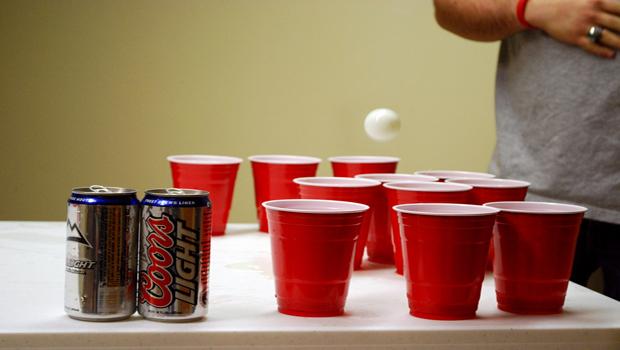Welcome to high school: it’s middle school on steroids. The workload, the people, the parties – it’s all amped up just a notch or two. And at some point, all students are confronted by temptations that conflict with the law, their families’ values, and their own moral beliefs. Decisions loom at every turn, whether it’s a choice to imbibe alcohol, consume drugs, or be a generally ragin’ rebel.
A Legend survey on Jan. 7 about alcohol use among Urban students revealed a wide range of opinion, from teens who see alcohol as a normal part of growing up, to others who avoid it entirely.
“I think (alcohol use) is just part of being a teen,” wrote one survey respondent, an 11th grader who drinks occasionally on weekends. “If you ever ask your parents if they drank in high school they’ll probably say yes, unless they are religious or didn’t party.”
“At parties, no one drinks casually,” a junior who drinks once or twice a semester wrote. “You have to be drunk in order to hook up with someone. (“Hookup,” in this case, refers to making out with someone you have a crush on.)
The survey consisted of 10 questions, including grade level; drinking habits; parents’ attitudes; and reasons why teens drink.
Out of 121 respondents in grades 9 through 12, 70 percent admitted to drinking alcohol. Most respondents acknowledged drinking only on “some weekends.” A majority of students reported that their parents espouse a “don’t ask don’t tell” approach to teen drinking.
Significantly, three in four respondents said they drink to relax and have fun. Other reasons included to get in the party mood, to look cool and fit in, and to overcome shyness and insecurities. The number-one reason why teens binge drink was an inability to socialize without being “faded.” Low self-esteem and peer pressure tied for second.
Interviews backed up the survey data. “It worries me that some of my peers seem to be reliant on alcohol to have fun,” said Simone Hudson (’12). “Though I recognize that alcohol use is a very personal choice, it makes me sad to see this dependence.”
Despite the pressure to avoid alcohol, some students think high school is an important time to experiment and test limits.
“High school is about … having interesting and new experiences before you have a career to worry about and while [there are] people still in charge of you to help if you take things too far,” said one sophomore, who nevertheless abstains from alcohol.
Another student, a junior who drinks on some weekends, wrote “teenagers need to know their limits before they go to college.
“If they don’t, they’ll be overwhelmed by the accessibility and excess of alcohol and end up hurting themselves,” the junior wrote. “Teen drinking is an important part of finding your limitations while still under the beneficial watch of parents who will help if something goes wrong or you get hurt.”
Some students also said peer pressure is over-hyped. Urban alumna Liz Jensen (’08), now a junior at Massachusetts Institute of Technology, noted how “people are really respectful of how much you want to drink. It’s easy to get around it if you do not want to.”
Health experts differ in their approach to teen drinking. William Solomon, a pediatrician at Pacific Pediatrics Medical Group, thinks every “relationship” between alcohol and someone under the age of 17 — meaning a teen whom imbibes even once — is cause for alarm.
But Jennifer Epstein, Urban health teacher, prefers self-awareness to hard and fast rules. Being comfortable in your own skin, she says, is the best approach to confronting alcohol. “It is harder,” she acknowledges, “but it is more sustainable.”
While experts disagree, one thing is obvious: While drinking alcohol under the legal age limit of 21 is controversial, it happens with frequency. Also, many Urban students appear to think that young people are best served by a good education on health issues; room to make mistakes; and open-minded yet cautious parents who can help teens make difficult decisions.
“Teen drinking is abuse of kids’ futures, (their) intelligence, (their) academic and social success, and their health,” declared one freshman. “It is therefore a problem.”

